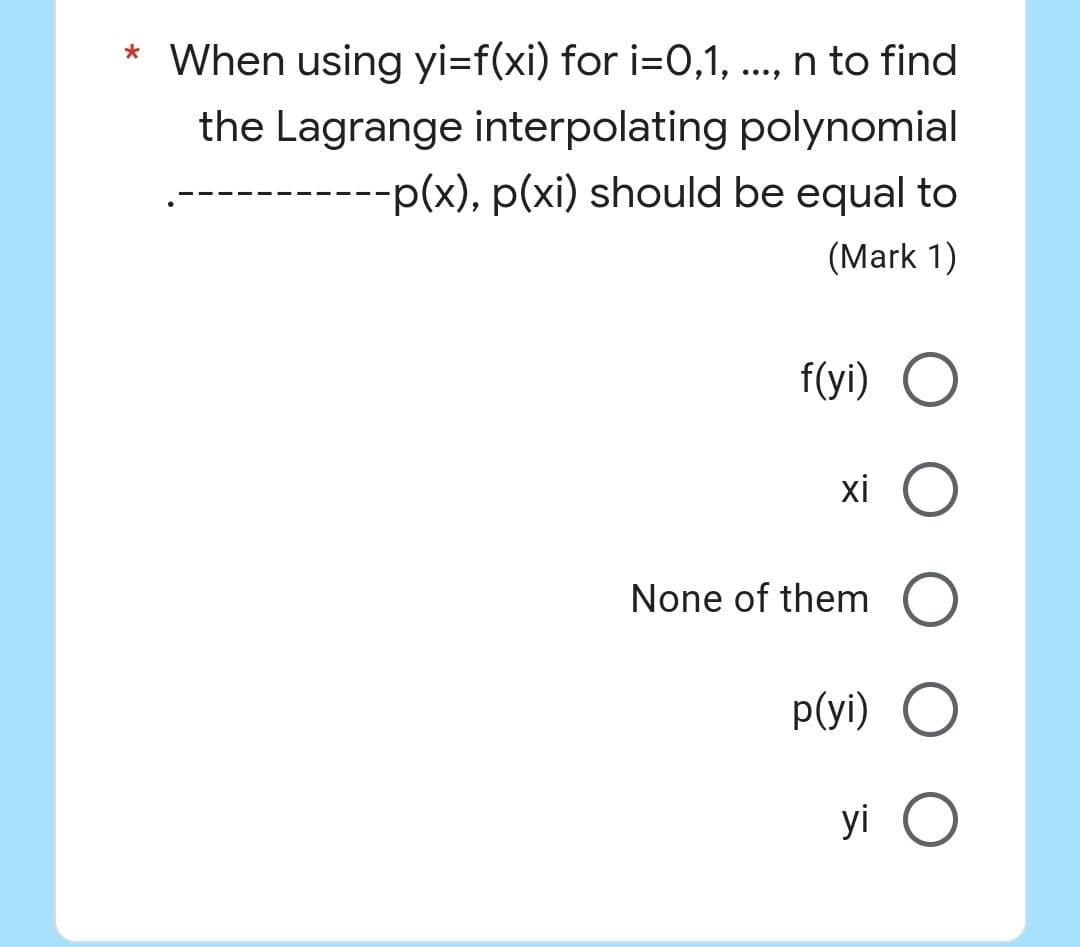When using yi=f(xi) for i=0,1, ..., n to find the Lagrange interpolating polynomial ---p(x), p(xi) should be equal to (Mark 1) f(yi) O xi O O O O None of them O p(yi) O yi O
When using yi=f(xi) for i=0,1, ..., n to find the Lagrange interpolating polynomial ---p(x), p(xi) should be equal to (Mark 1) f(yi) O xi O O O O None of them O p(yi) O yi O
Algebra & Trigonometry with Analytic Geometry
13th Edition
ISBN:9781133382119
Author:Swokowski
Publisher:Swokowski
Chapter5: Inverse, Exponential, And Logarithmic Functions
Section5.3: The Natural Exponential Function
Problem 56E
Related questions
Question

Transcribed Image Text:* When using yi=f(xi) for i=0,1, ..., n to find
the Lagrange interpolating
polynomial
·--p(x), p(xi) should be equal to
(Mark 1)
f(yi) O
xi O
None of them O
p(yi) O
yi O
Expert Solution
This question has been solved!
Explore an expertly crafted, step-by-step solution for a thorough understanding of key concepts.
Step by step
Solved in 2 steps with 2 images

Recommended textbooks for you

Algebra & Trigonometry with Analytic Geometry
Algebra
ISBN:
9781133382119
Author:
Swokowski
Publisher:
Cengage


Linear Algebra: A Modern Introduction
Algebra
ISBN:
9781285463247
Author:
David Poole
Publisher:
Cengage Learning

Algebra & Trigonometry with Analytic Geometry
Algebra
ISBN:
9781133382119
Author:
Swokowski
Publisher:
Cengage


Linear Algebra: A Modern Introduction
Algebra
ISBN:
9781285463247
Author:
David Poole
Publisher:
Cengage Learning

College Algebra (MindTap Course List)
Algebra
ISBN:
9781305652231
Author:
R. David Gustafson, Jeff Hughes
Publisher:
Cengage Learning

Mathematics For Machine Technology
Advanced Math
ISBN:
9781337798310
Author:
Peterson, John.
Publisher:
Cengage Learning,